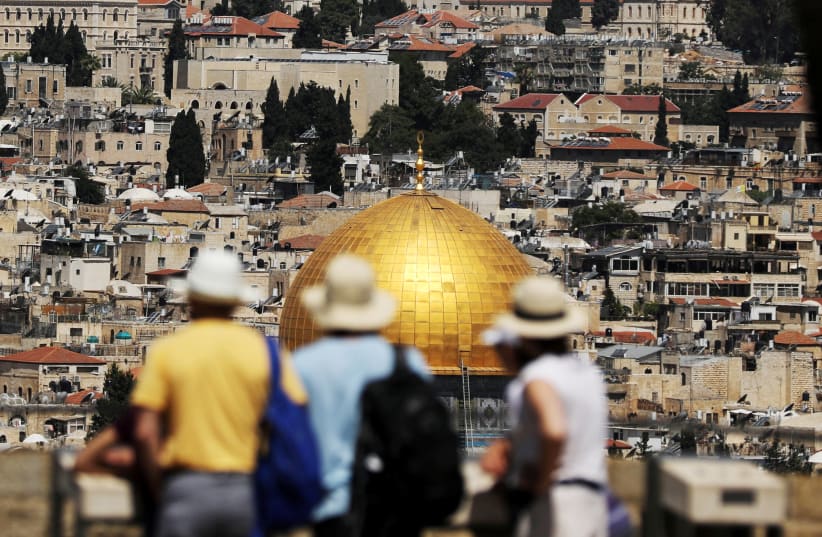The unprecedented decision came in accordance with recommendations by religious and health parties, the Jordanian-controlled Wakf said after holding an emergency meeting in Jerusalem.
The decision means that worshipers would not be permitted to enter the compound starting Monday.
This is the first time the Wakf called on Muslims not to come to the compound.
The Wakf said its employees and guards would continue to report to work despite the decision to suspend the prayers.
It also said that while the Wakf took the decision with “bitterness,” it was forced to do so to protect the life and safety of the Muslim worshipers.
In the past few weeks, hundreds of Muslims have been converging on the compound for prayers, ignoring warnings by the Israeli Health Ministry and other health institutions in Jerusalem.
The decision to close Al-Aqsa Mosque for prayers came a day after the chairman of the Wakf, Sheikh Abdel Azim Salhab, was fined NIS 5,000 for allowing hundreds of worshipers to gather at the site in violation of the Health Ministry guidelines.The Jerusalem Post understands that the Temple Mount will also be closed to all Jewish and other visitors starting Monday.
Until now, the police have permitted groups of up to 10 Jewish visitors to ascend to the site during the regular visiting hours for non-Muslims in the morning and afternoon. That has now ended.
Jeremy Sharon contributed to the report.
